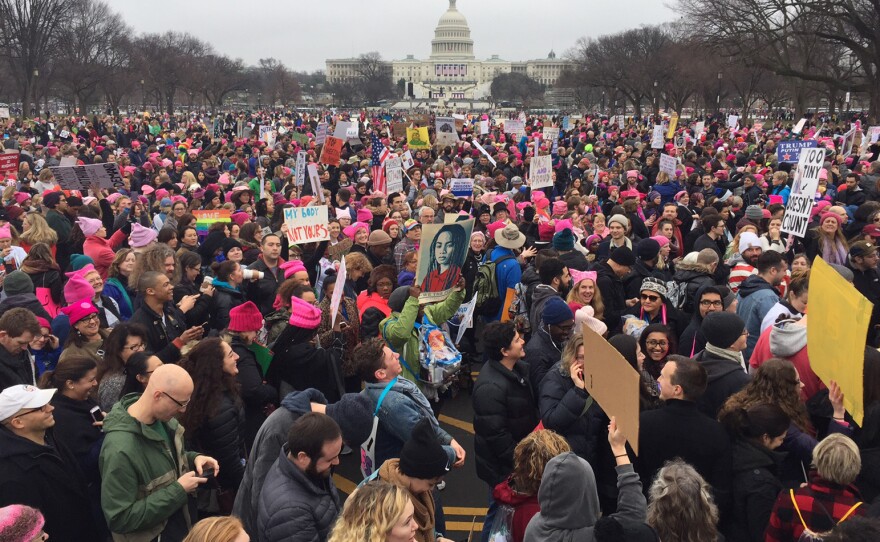
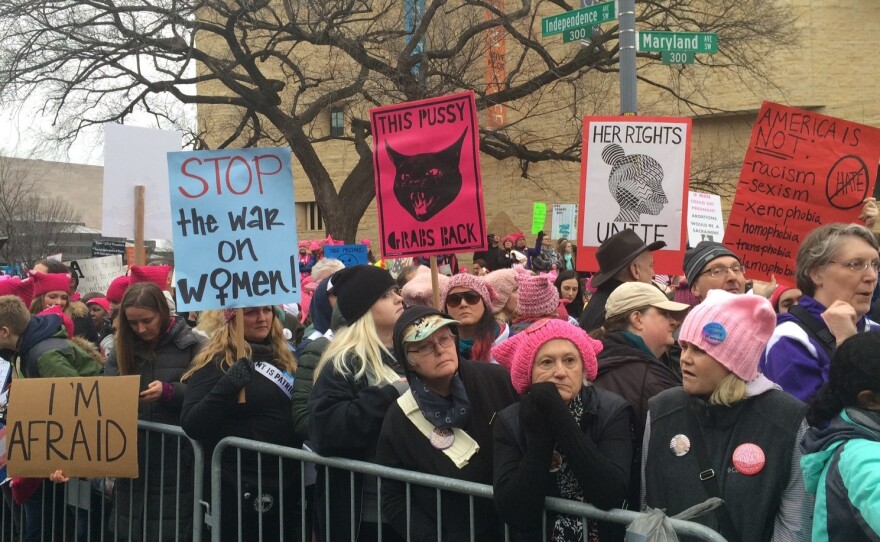
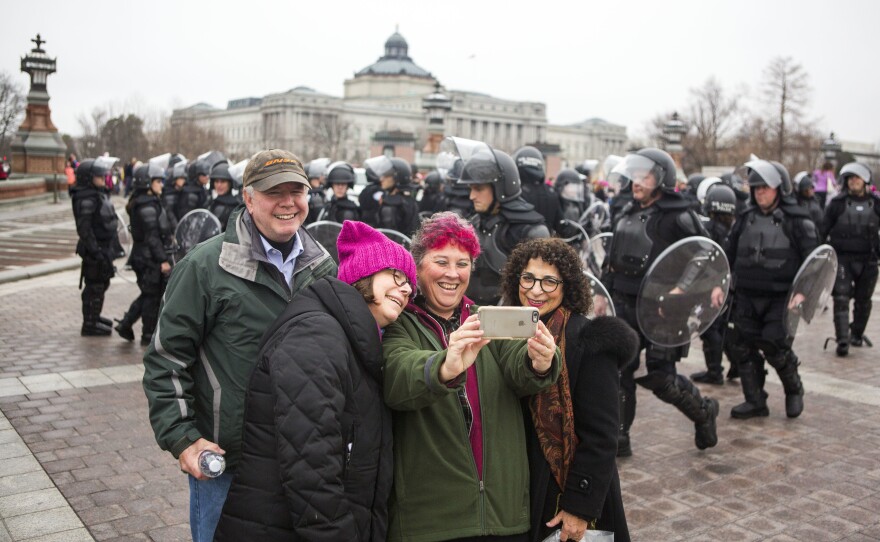
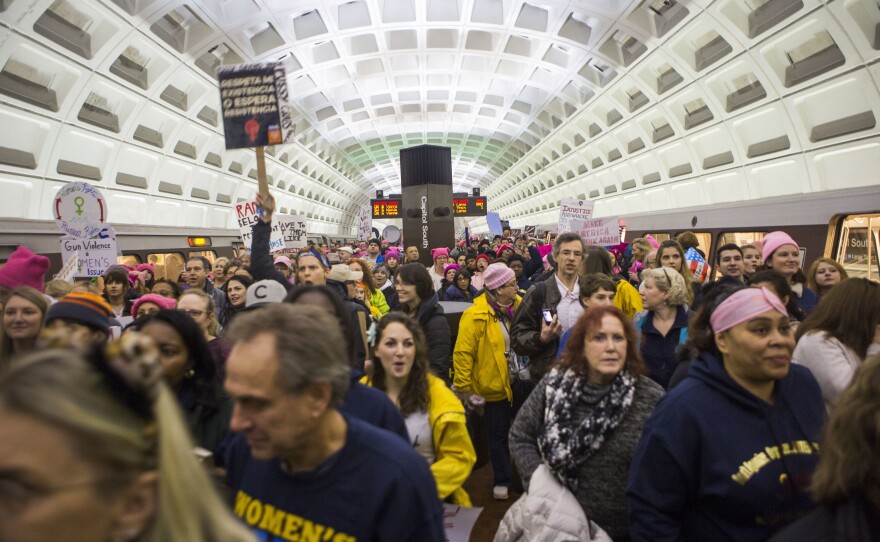
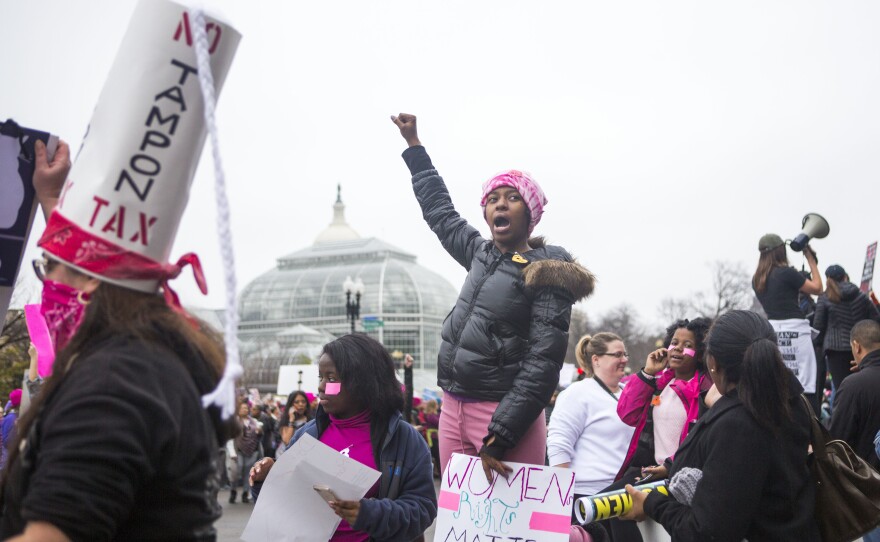
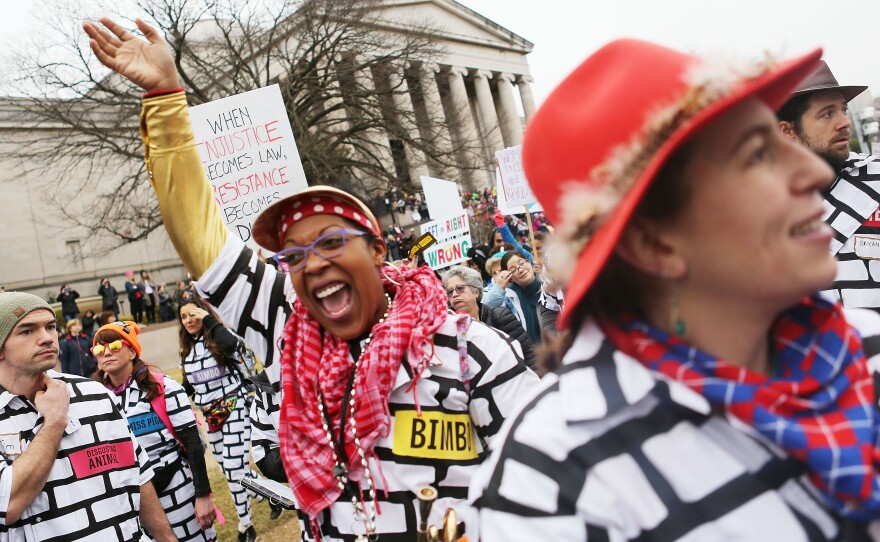
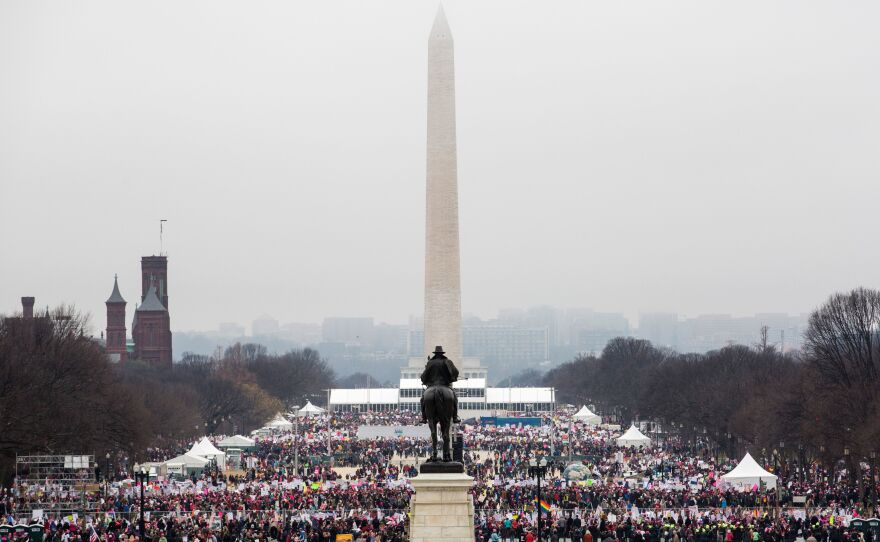
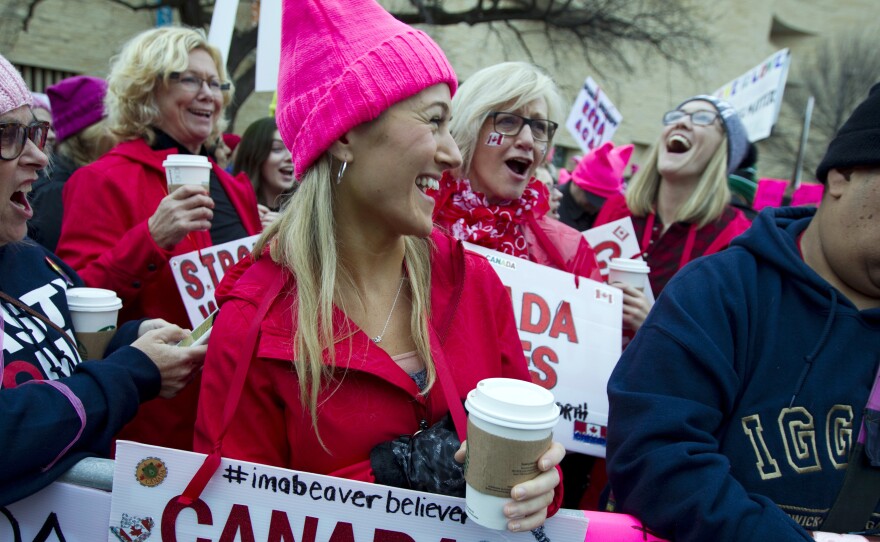
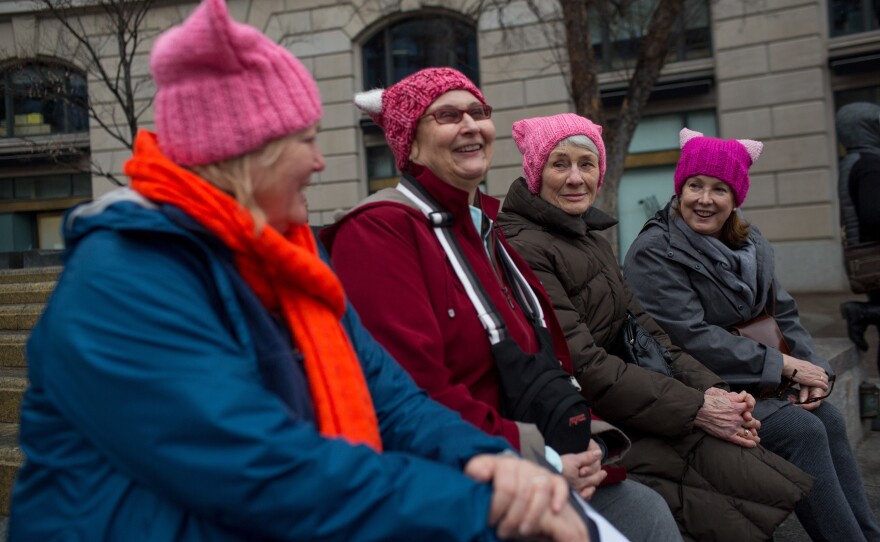
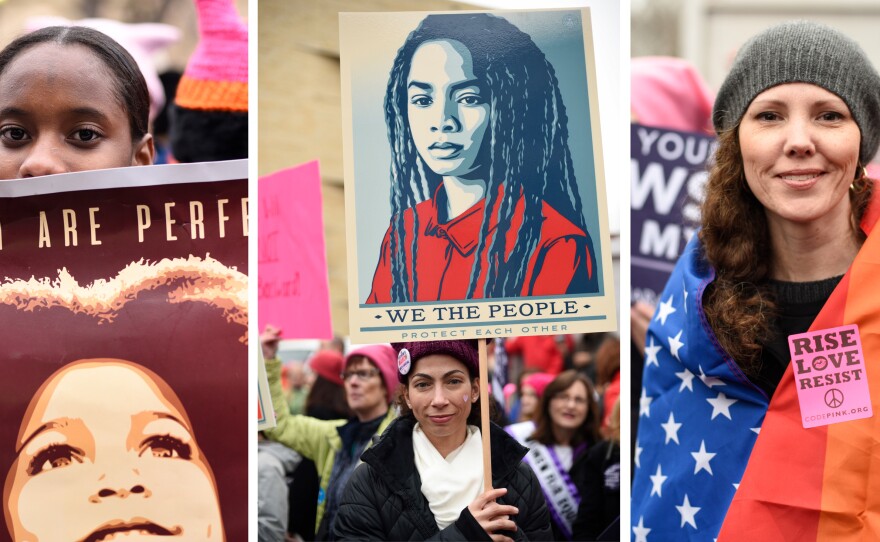
Updated at 12:20 p.m. ET
The National Mall has flooded with pink, as demonstrators descend on the nation's capital Saturday for the Women's March on Washington. Just one day after President Trump's inauguration, marchers from across the country have gathered in the city to protest his agenda and support for women's rights.
A three-hour rally is opening the event. The march proper is planned for the mid-afternoon, with a path that's set to extend from a starting position near the U.S. Capitol to its endpoint near the Washington Monument.
The city's metro system reported 275,000 rides as of 11 a.m. According to metro officials that's eight times more than a normal Saturday. Reuters adds that the number is als "82,000 more than the 193,000 rides reported at the same point on Friday," the day of Trump's inauguration.
Despite the event's humble origins — a simple Facebook invitation after Election Day — the protest has ballooned into something much more massive. By the time marchers hit the streets Saturday, the Women's March on Washington had gotten a broad platform of progressive political positions, a slate of celebrity performers and a series of sister marches planned across the world — on all seven continents.
For protester Amy Jackson, though, the matter was simple: She just wanted to "make her voice heard," she tells NPR's Marisa Penaloza. Jackson, who traveled to D.C. from Chocowinity, N.C., to be part of the march, said, "It was very important to be here today."
Among the crowd that gathered for the rally outside the National Museum of the American Indian, NPR's Sarah McCammon reports signs supporting a wide array of causes — from women's rights and LGBTQ rights, to Black Lives Matter and excoriations of xenophobia.
One thing seemed to be almost universal, though: The pink knitted caps that have come to be known as "pussyhats" among the marchers, in protest of Trump's past comments about women.
Meanwhile, at a nearby metro station, NPR's Pam Fessler reports the mood among the demonstrators has been more festive than protests Friday. Most of the demonstrators are women, Pam says, but some men have joined the march, as well — including one man carrying a sign reading: "This is what a feminist looks like."
What began simply as opposition to Trump has developed a wide-ranging list of progressive demands, which organizers published as a platform prior to the march.
But above all, organizers say, is the principle that "Women's Rights are Human Rights and Human Rights are Women's Rights." That statement is pulled directly from a speech Hillary Clinton delivered more than two decades ago in Beijing.
Clinton tweeted her support for the march Saturday, expressing thanks "for standing, speaking & marching for our values."
Arriving at that platform was not always a smooth process, though. NPR's Hansi Lo Wang reports there has been disagreement between organizers about how to treat issues of race.
"This march was initially put together by white women, and a lot of women of color felt they weren't part of the conversation," Carmen Perez, one of the march's national organizers, told NPR's Hansi Lo Wang. "We can't continue to work in isolation. We can't continue to be one-dimensional. We have to make sure that we look up, that we begin to really coordinate our efforts."
For Darcy Sawatzki, a demonstrator attending the march with her daughter, Delia, what matters most is showing up.
"I think showing up and paying attention is sort of one of the bare minimums of citizenship," Sawatzki told NPR's Brakkton Booker. It's not her first march; she has also participated in Black Lives Matter protests.
She says it's not unease with the new president that inspired her to march.
"I'm not here out of anger or fear, I'm out here for determination, for participation and hope that together we can make a difference."
The Women's March on Washington opened with a rally that featured speakers like Gloria Steinem, Angela Davis and Ashley Judd. Janelle Monae also performed, among more than a dozen other musical acts.
Copyright 2017 NPR. To see more, visit http://www.npr.org/.





